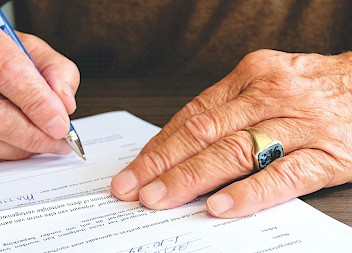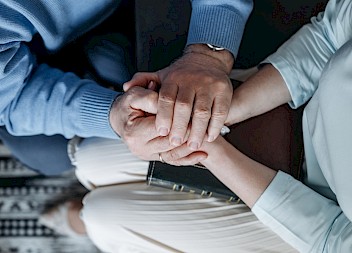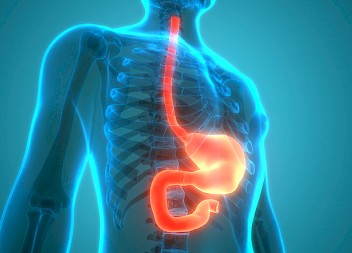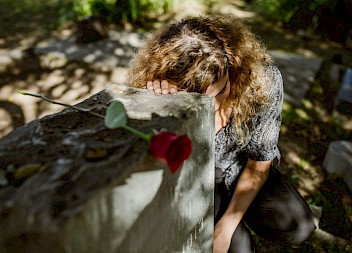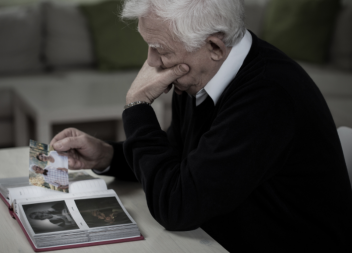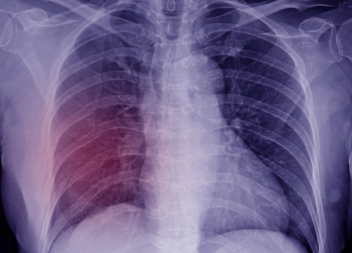No amount of money can bring back a loved one who has died from medical negligence. Neither will it repair the emotional damage caused to those left behind knowing their loss could have been avoided save for someone else’s mistake.
However, following a fatal incident, claims can be made for the family and estate of the deceased to compensate them for their pain and suffering.
Many might assume the loss of life will warrant the highest amounts of compensation, but in reality that is not the case
Bereavement damages in particular have long been highly criticised for being out of date, rigid and discriminatory for people living in England, Wales and Northern Ireland.
What are bereavement damages?
Under the Fatal Accidents Act 1976, bereavement awards are statutory damages paid out to compensate families for their pain and suffering of a loved one who died following an act of negligence, such as clinical negligence, a road traffic accident, or an incident at work.
In England and Wales, statutory bereavement damages are fixed at £15,120. This was recently increased for the first time in seven years from £12,980. But is this all a life is worth?
While you can’t value a life in monetary terms, compensation is the only tool the legal system has to reduce the burden of loss as well as the grief and trauma families experience following a wrongful death.
Who can claim bereavement damages?
A major critique of the law is that certain criteria must be met for family members to claim bereavement damages. Up until 2020, you had to be the surviving spouse or civil partner, or the parents of any unmarried children under 18 to claim bereavement damages. Even now, if the child is illegitimate, only the mother can claim this award.
In October 2020, the law changed to allow an unmarried partner to be included, but only if they had been cohabiting for two years before the death. This was following a landmark case, Smith v Lancashire Teaching NHS Hospitals Trust, in 2017 whereby the claimant argued the antiquated laws were not fair for couples like her who had lived together unmarried for 16 years.
Despite the revision, there are still many people unable to claim for bereavement damages, such as children who have lost a parent, parents if the child was over 18, grandparents and siblings. The law in England, Wales and Northern Ireland fails to recognise the close relationships family members may have and the grief they too will be experiencing.
How does the law differ in Scotland?
In Scotland, cases are seen on an individual basis, with family members treated more sympathetically. There is also no cap on the amount of compensation that can be claimed, and awards are generally higher than the rest of the UK.
All members of the immediate family are taken into account, so brothers and sisters, grandparents, or step-family are all treated equally. So, for example, if someone were to die due to surgical errors made during routine surgery, the Scottish system would look at the impact that person had on their whole family and judge each respective relationship on its own merit, rather than just award nominal damages to their husband or wife.
A dis-United Kingdom
The Association of Personal Injury Lawyers (APIL) has long campaigned for an overhaul of the law regarding bereavement damages. Their report, A Dis-United Kingdom, highlights the postcode lottery in this country and how the out-of-date law should be brought into the 21st Century.
In their report, they found that 69 percent of people believe compensation for bereavement damages is not enough, 73 percent think the amount should vary based on individual circumstances, 85 percent agree that fathers should be entitled to compensation if they lose their child and aren’t married to the mother, and 56 percent feel that relatives should be individually assessed.
But the government still insists the current system works for modern families.
Earlier this summer, Cardiff MP Anna McMorrin challenged the government to review the law to reflect life in 2021. In his response, justice minister, Chris Phillips, said the existing system represents a reasonable, proportionate and practical approach and there are no plans for wider consultation on damages or the Fatal Accidents Act 1976.
The Government considered the case for reform when responding to a report by the Joint Committee on Human Rights in February 2020. The Government believes that the existing system involving a fixed level of award and clear eligibility criteria represents a reasonable, proportionate and practical approach, and the Government does not currently have any plans for wider consultation on the bereavement damages regime or the Fatal Accidents Act more generally.Chris Phillips, justice minister
The Ministry of Justice has always made clear that bereavement damages were only inended to be a ‘token payment’ in their eyes. But for those on the receiving end, the meagre amount which has come to denote the loss of a life is a mark of disrespect.
Sarah Johnson is a senior solicitor at Medical Solicitors and a senior litigator of APIL. She says of the matter: "The government needs to look hard at whether the amount awarded for bereavement damages fairly reflects on the injury suffered to those that have lost a loved one. Further, whilst the government talks about levelling up between North and South, what about levelling up bereavement damages for close family members? Those with close ties and affection to the deceased should not face discrimination in favour of those that fit the current strict criteria for this award."
What else does the law say?
There are two main pieces of legislation which relate to fatal incidents such as death due to medical negligence. These are the Law Reform (Miscellaneous Provisions) Act 1934 and the Fatal Accidents Act 1976. The former is generally a claim made on behalf of the deceased’s estate, and the latter is a claim made by the dependants of the deceased.
Under the Law Reform Act 1934, the deceased is entitled to a continuation of their existing rights from the time of injury up until their death. This covers those not killed outright from the incident, but who subsequently die from their injuries some days or weeks later. A claim may be made for pain and suffering, loss of amenity and loss of income during that time period. However, it cannot include a claim for future losses. Any compensation awarded will be pass to the beneficiaries in the deceased’s will (if they have one, otherwise laws of intestacy will decide). The amount of compensation awarded in these circumstances should reflect the period of suffering endured by the injured party before their death.
With the Fatal Accidents Act 1976, there are three main elements to death compensation: bereavement damages, funeral expenses, and dependency claims.
Dependency claims are those made by the surviving dependants, such as the spouse, cohabitee or children – those who would have received financial support or indeed ‘services’ such as help with daily living activities, DIY, gardening or childcare from the victim had they survived. Funeral expenses can also be reclaimed, so long as they are reasonable, if the family was made to pay for them.
It is important to note that before a claim can be investigated, there must have been internal investigation by the hospital and/or an inquest held by the coroner into the cause of death, where the cause of death is unknown or the person died a violent or unnatural death.
About Medical Solicitors
Our friendly and compassionate team of specialist lawyers have extensive experience of helping clients affected by wrongful death due to medical negligence.
We conduct most of our Clinical and Medical Negligence claims under ‘No Win, No Fee’ agreements, also known as Conditional Fee Agreements. So, our clients do not have to worry about how they can possibly afford to pay for death claims and neglect claims. You have nothing to lose in speaking to us.
Please Note: At Medical Solicitors, we can help with wrongful death claims due to medical negligence in England and Wales and will be happy to offer some assistance if your case is located in either of these regions. Unfortunately, we do not deal with medical negligence claims outside of England and Wales.




